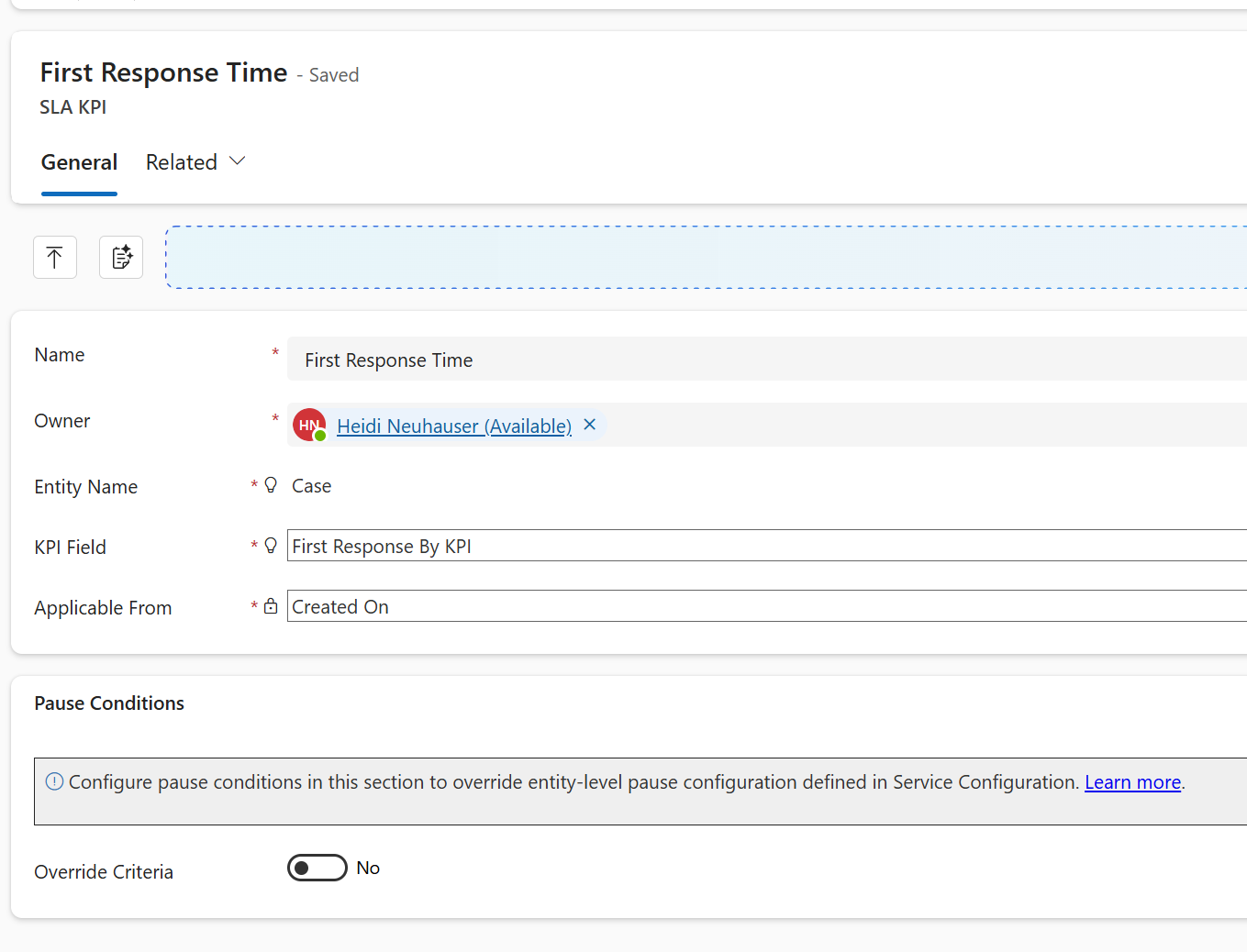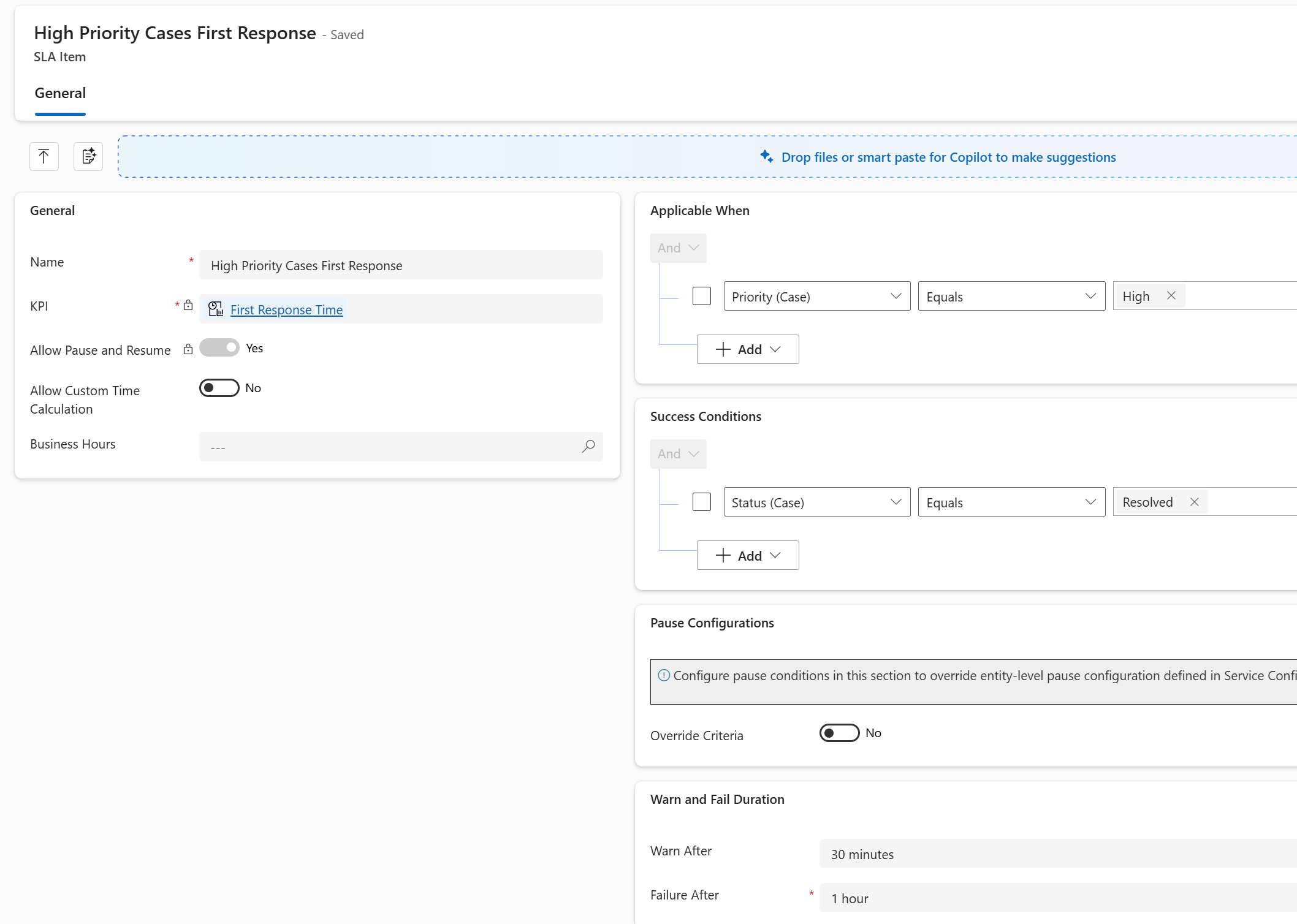Understanding the SLA Dataverse Tables


SLAs in Dynamics 365 are confusing. Multiple tables power them: SLA, SLA Item, SLA KPI, and SLA KPI Instance. And it’s not always clear where the reporting data lives. If you want to build great visuals to track SLA success, which table should you use? Let’s break it down.
SLA: The Definition
The SLA table stores the overall definition. You can think of it as a container that says, “These are the rules of engagement.” You will enter a name, primary entity, and description. That’s all!

By itself, you won’t get any reporting data at all. You cannot tell whether cases hit or miss an SLA. Read all about SLAs in this Microsoft Learn article.
SLA KPI: The Metrics Set-Up
Hot tip: Configure this before you enter all the details on your SLA Item, which requires it before you can create a new item. The SLA KPI table is simple: It defines which key performance indicators will be tracked. If you want to track First Response Time (a great one to start with!), it might look like this:

Make sure to activate it! If you don’t, you won’t be able to add it to your SLA Item. These are the measurable goals you configure against a case or another record type. But like the base SLA table, this one is all setup and contains no reporting at all. Want to see more about the SLA KPI table? Here is the Microsoft Learn article with all the table details.
SLA Item: The Rules
Now we move on to the more important bits of SLAs: the SLA Item. This table defines the conditions and actions that will apply to the SLA. Each item specifies which records the SLA applies to (like “all high-priority cases”) and what to do if the SLA is met, missed, or about to be missed. SLA Items are logic and automation, not measurement.
You will add the SLA Item from the SLA, selecting the SLA KPI you configured in the prior step. Once configured, it may look like this:

Here is the full documentation from Microsoft Learn about the SLA Item table.
SLA KPI Instance
Finally, the table where the action happens! Every time a record (like a case) is evaluated against an SLA, an SLA KPI Instance record is created. This table shows whether the KPI is in progress, succeeded, failed, or paused. It includes start time, warning time, failure time, succeeded on, failure on, and more. If you want to build visuals in Power BI or dashboards in Dynamics, this is the table you care about.
If you want to view the full list of columns in this table, check out this documentation from Microsoft Learn.
Overview
| Table | Purpose | Reporting Value |
|---|---|---|
SLA | Container definition | None |
SLA KPI | Metrics setup | None |
SLA Item | Rules & conditions | None |
SLA KPI Instance | Actual results! | Yes! |

